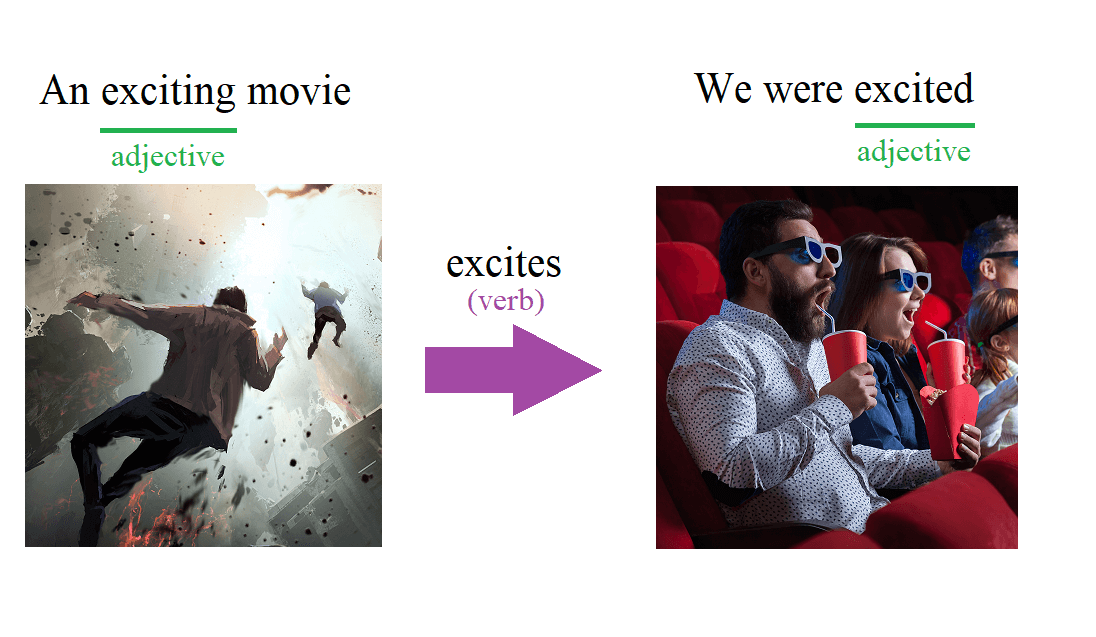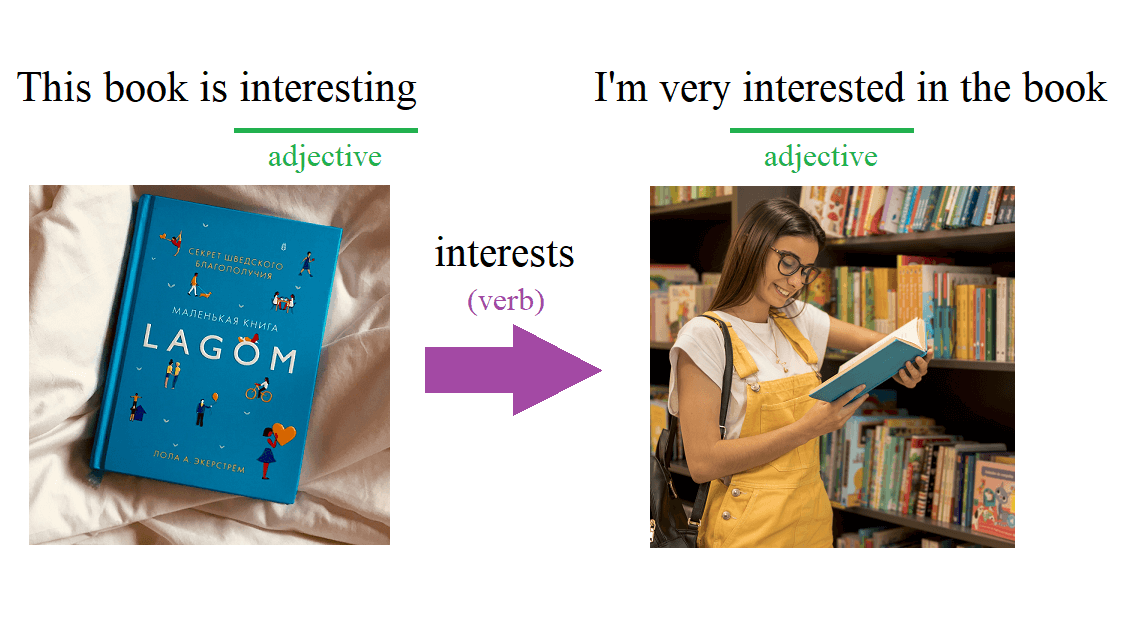-ing Vs -ed Adjectives
- -ing adjectives describe things or situations that cause a feeling.
- -ed adjectives describe how people feel.
- Understanding the difference helps in accurately expressing emotions and reactions.
Adjectives ending in -ing and -ed are commonly used in English to describe feelings and the causes of those feelings. This lesson will help clarify when to use each form, enhancing your ability to describe experiences and emotions accurately.
-ing Adjectives
-ing adjectives are used to describe things or situations that cause a feeling. They often describe the characteristics of something that affects others.
Examples are "exciting", "interesting", "boring", "fascinating". You can say, "This book is interesting" or "That movie was exciting" because these things can cause these emotions. However, you cannot say, "This book is interested" or "That movie was excited" because books and movies are not people and they can't feel anything.

Examples:
-
This movie is interesting.
The movie (subject) + is (be verb) + interesting (-ing adjective) because it keeps our attention.
-
The book is boring.
The book (subject) + is (be verb) + boring (-ing adjective) because it does not engage the reader.
-ed Adjectives
-ed adjectives are used to describe how someone feels. They focus on the emotional response of the person to a situation or thing.
Examples are "interested", "bored", "excited", "fascinated", and "tired". You can say something like, "I'm interested in this book" or "My friends were excited to go on a trip together".

Examples:
-
She is interested in the movie.
She (subject) + is (be verb) + interested (-ed adjective) because the movie captivates her attention.
-
I am bored with this book.
I (subject) + am (be verb) + bored (-ed adjective) because the book does not hold my interest.
Remember, the -ing form describes the source of the feeling, while the -ed form describes the personal feeling. Practice using these adjectives in sentences about your own experiences to master their use.
Practice this topic with the AI English Tutor
AI English Tutor will teach you the grammar and practice it with you in a conversation format. Plus, 100+ practice questions on this topic to cement your understanding.
Try ALULA for free on your phone or tablet








Do you have any questions about this lesson? Ask in the comment section, below.